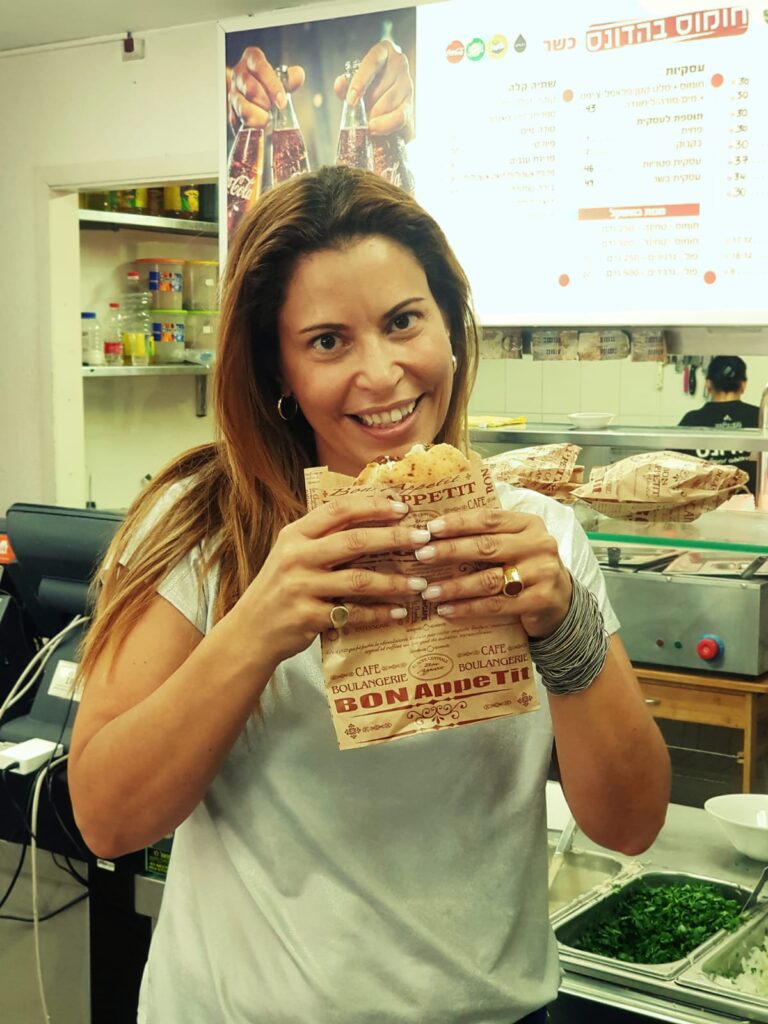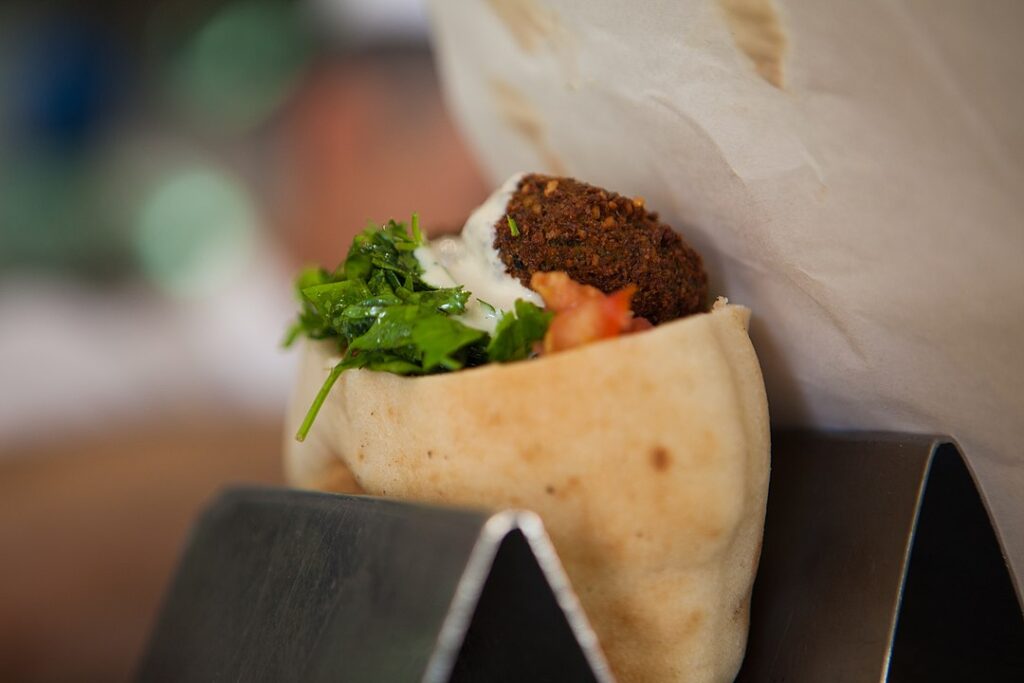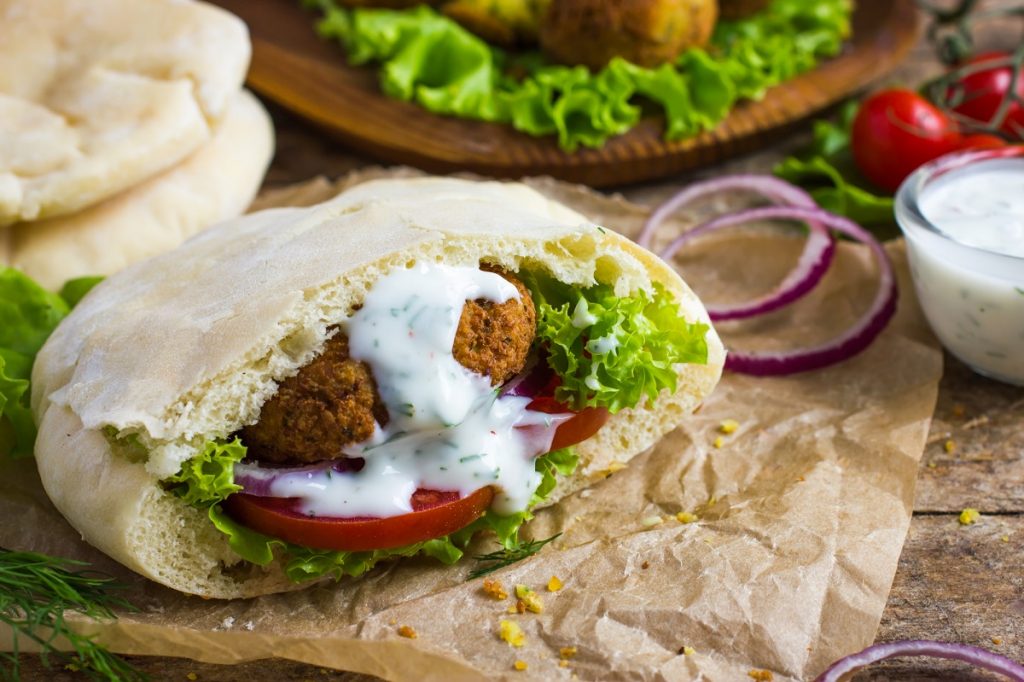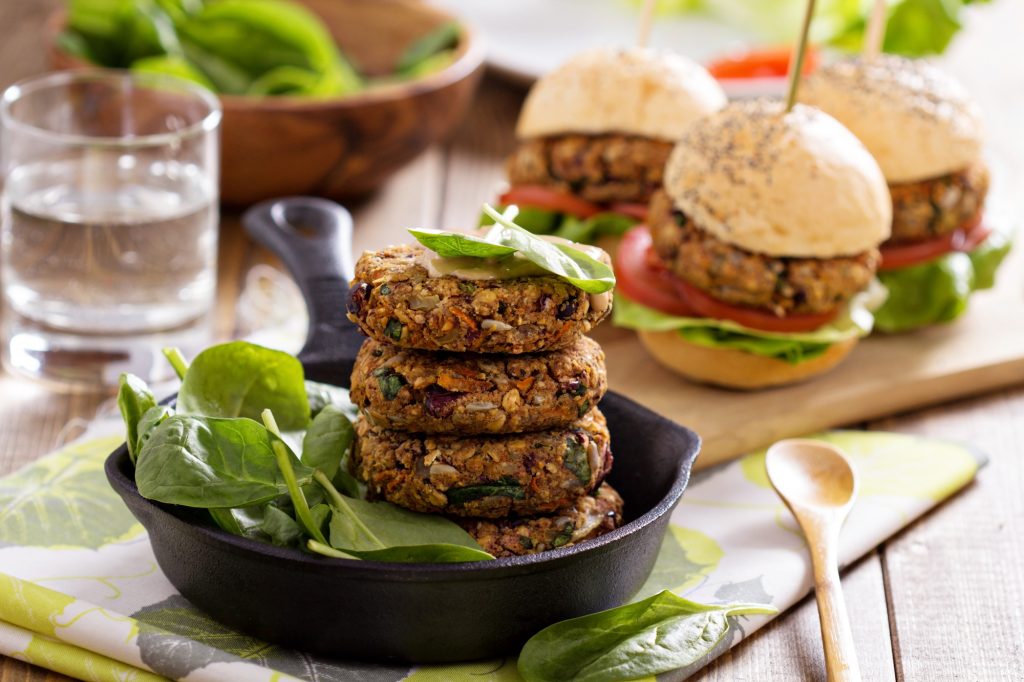Falafel, the deep-fried chickpea ball of yumminess, and a long-time symbol of street food in Israel is claiming a new title role this week as a symbol of survival and optimism for small businesses in these turbulent times of COVID-19.
A group of volunteers chose the falafel delicacy to star in an inaugural entrepreneurial initiative aimed at adding a scoopful of optimism to help rehabilitate small businesses that were hit hard during the novel coronavirus pandemic. The project is called Menat Hadegel (the flagship dish) and calls on Israelis to buy falafel sandwiches from small businesses on June 18, and donate them to non-profit organizations and welfare institutions.
“Falafel. It’s the most identifiable Israeli thing that there is. After what happened with falafel owner Yuval Carmi, who cried during a television interview [about the heavy economic toll during the country’s shutdown], we decided to help small businesses facing economic difficulties and chose to begin with falafel stands,” Bruria Na’im-Arman, CEO of CR Community Relations and one of the leaders of the Menat Hadegel project, tells NoCamels.
“It’s also something you don’t order online. You need to go to the falafel stall to order. So, the falafel owners really need a boost to business,” Na’im-Arman says.

In the run-up to June 18, the day the debut project will take place around the country, calls have been put out to companies wishing to donate, volunteers who want to help deliver the falafel sandwiches to vulnerable communities, and falafel shops who want to take part in the event.
A Hebrew-language website has an interactive map of falafel joints taking part and where you can buy-to-donate falafel sandwiches.
The goal: at least half a million shekels’ worth of falafel orders.
“When you buy falafel orders during this initiative, you understand the value. You’re not just donating money; you know that this food will go to a vulnerable community and make a difference. You’re donating and you’re taking action. There is a bigger message here,” says Na’im-Arman.
“The goal is to strengthen the falafel owners who suffered a very severe blow during the COVID-19 pandemic from Kiryat Shmona to Eilat, thus giving an economic boost to 350 falafel stall owners. At the same time, we will call on as many consumers as possible to return as customers and take an active part of moving the small food business forward. It’s NIS 18 for you, and a breath of air for the falafel shop owners,” Ziv Shilon, one of the project’s leaders, said in a press statement.
On the day of the cross-country falafel celebration, Menat Hadegel volunteers will collect the falafel orders and distribute them regionally to welfare institutions, Holocaust survivors, medical teams, and non-profits.
“It’s not about how many falafel sandwiches we sell. The success of this project is measured according to social action, people coming together to support other people and help make an improvement,” says Na’im-Arman.
“Israelis are a warm, caring people,” Na’im-Arman says, referring to the numerous social initiatives that cropped up during the Covid-19 lockdown. “Covid-19 affected everyone, surprised everyone and hurt everyone. I think this really brought out the need for social responsibility.”
Sign up for our free weekly newsletter
SubscribeFalafel owners, like other small business owners around Israel — and the world, for that matter — were hit hard during the novel coronavirus pandemic as eateries and stores shuttered their doors according to regulations put in place to prevent the spread of COVID-19.
In Israel, the crisp, brown chickpea balls of goodness became a symbol of the economic distress after falafel shop owner, Carmi, misunderstood April amendments to lockdown rules, reopened his business only to be shut down by authorities within hours. He was then interviewed by a local Israeli television news show and broke down in tears on camera.
The interview reverberated throughout Israel.
An act of kindness by social activist and entrepreneur Shilon spurred the Menat Hadegel campaign. Upon seeing Carmi’s story on television, he ordered 150 falafel portions from Carmi to donate to IDF soldiers.
The snowball of social responsibility was rolling.
Omer Yair and Noam Biton, twenty-something Israelis, saw Shilon’s act of kindness and wanted to do something, too. They reached out to Shilon who jumped on board, as did other celebrities and businesses, and a social initiative was born.
“Society is more sensitive right now, COVID-19 really shook up our society and there is a need to help,” Na’im-Arman tells NoCamels. “Social responsibility is not only an Israeli trait, but it is a part of who we are. The painful economic blow hit everyone — small businesses in northern Tel Aviv and small businesses in Beersheba or Acre. There is a feeling of solidarity. Our mission is to help lift people back up on their feet.”
The all-volunteer initiative organizers say the first call-to-action is saving the falafel shops. Rehabilitating other parts of the local economy is also on the horizon.
“We hope this is the first project of many social projects to help small businesses,” sums up Na’im-Arman. “We plan to help as many others as we can. We’re starting with this.”
Viva Sarah Press is a journalist and speaker. She writes and talks about the creativity and innovation taking place in Israel and beyond. www.vivaspress.com
Related posts

Rehabilitation Nation: Israeli Innovation On Road To Healing

Israeli High-Tech Sector 'Still Good' Despite Year Of War







Facebook comments